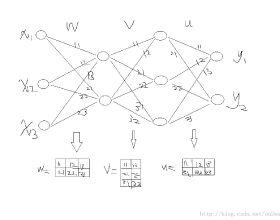Energy-based learning algorithms are alternatives to backpropagation and are well-suited to distributed implementations in analog electronic devices. However, a rigorous theory of convergence is lacking. We make a first step in this direction by analysing a particular energy-based learning algorithm, Contrastive Learning, applied to a network of linear adjustable resistors. It is shown that, in this setup, Contrastive Learning is equivalent to projected gradient descent on a convex function, for any step size, giving a guarantee of convergence for the algorithm.
翻译:暂无翻译
相关内容
专知会员服务
34+阅读 · 2020年1月15日
专知会员服务
36+阅读 · 2019年10月17日
Arxiv
10+阅读 · 2022年2月10日
Arxiv
10+阅读 · 2021年10月17日
Arxiv
12+阅读 · 2021年10月4日



